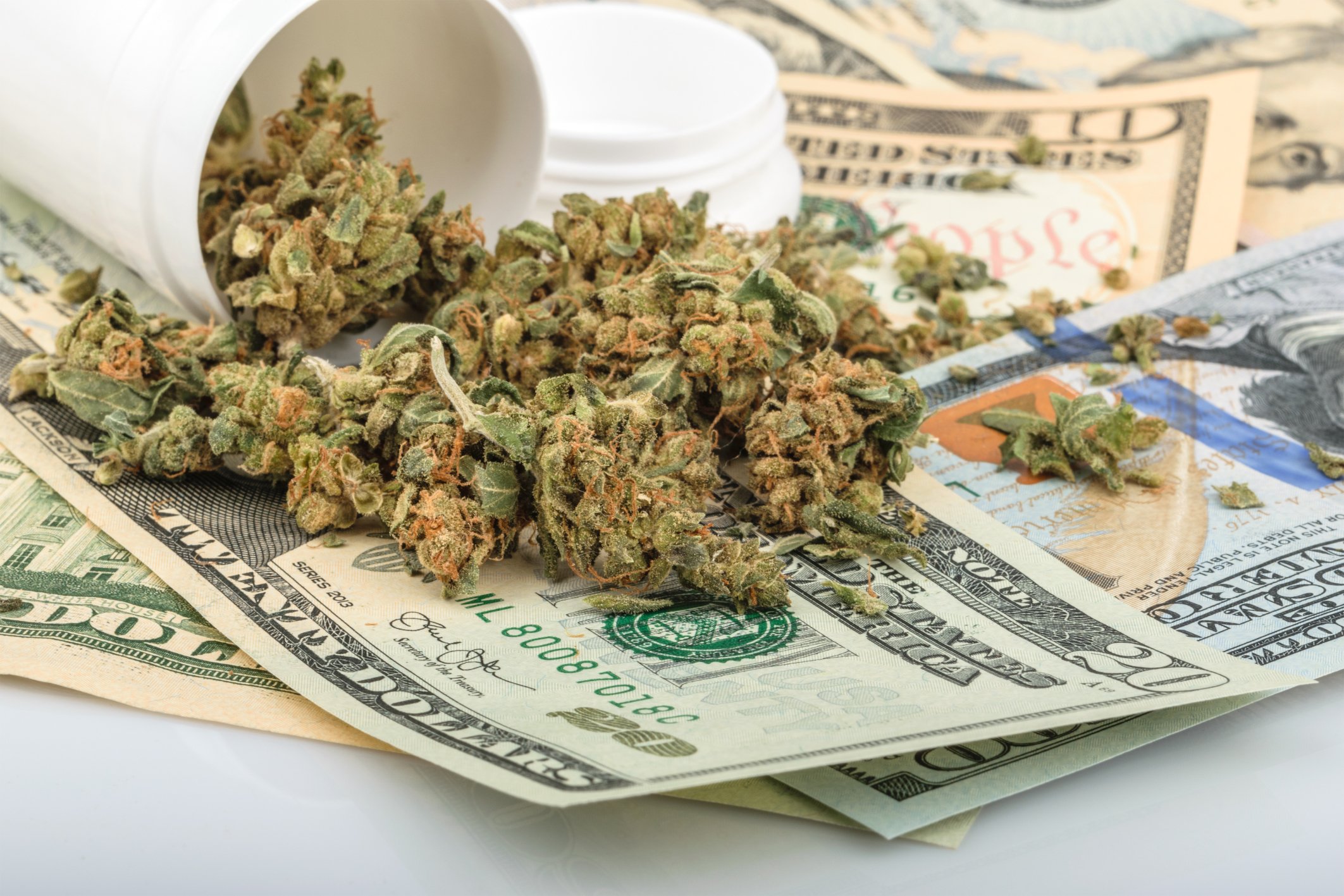
Image source: Getty Images.
The marijuana industry had an incredible 2016, and pro-legalization enthusiasts are hoping that momentum carries over into 2017.
Heading into 2016, there were 23 states that had legalized medical cannabis and four (Washington, Colorado, Oregon, and Alaska) that had legalized recreational pot. This in itself was impressive considering that, just two decades prior (1996), California became the first state to legalize any form of marijuana with its Compassionate Use Act for a select few medical patients. In 2017, five additional states wound up legalizing medical cannabis, two of which did so entirely through the legislative process, while residents in four more states (California, Maine, Massachusetts, and Nevada) approved recreational marijuana initiatives.
The expansion of state-level pot represents two key trends. First, we're witnessing a growing favorability toward marijuana from the public. National pollster Gallup found that 60% of Americans supported the idea of legalizing weed nationally in its latest poll, which is an all-time high. By comparison, marijuana's favorability was a mere 25% two decades ago.
We're also seeing a steady influx of investment and revenue into the pot industry. Investment firm Cowen & Co. estimates that the legal marijuana industry is worth about $6 billion at the moment, but that it could grow to become a $50 billion industry by 2026, representing a better than 23% annual rate of return.
But 2017 could prove to be another banner year for marijuana for an entirely different reason. For what would be the first time in the history of marijuana legalization, one state is strongly considering the idea of legalizing recreational pot via the legislative process.

Is Rhode Island next in line to legalize recreational marijuana? Image source: Pixabay.
Could this be the year we see a legislative recreational cannabis approval?
As reported by Reuters last week, legislators in Rhode Island are strongly considering bypassing a ballot initiative that would allow residents in the state to vote on recreational marijuana and instead legalizing recreational pot through the legislative process.
Democrats Sen. Joshua Miller and Rep. Scott Slater from Rhode Island are pushing the idea of a legislative approval out of fear of losing potential tax revenue to neighboring Massachusetts, which approved recreational weed in November. The concern of legislators is that consumers will simply drive across the border to Massachusetts, buy marijuana, then bring the product back into Rhode Island, cutting Rhode Island out of a potentially new channel of tax revenue. Gov. Gina Raimondo (D-R.I.) has suggested that she would be open to the idea of a legislative approval of recreational marijuana.
Although no formal proposal has been presented to the state's legislature as of yet, Reuters reports that a recreational marijuana law would apply to adults ages 21 and up, and it would place a cumulative 23% sales tax on consumers at the retail level.
If there is one factor working in Rhode Island's favor, it's that the legislatures of both Massachusetts and Maine will delay the official launch of recreational pot businesses within their respective states. Massachusetts won't launch its recreational pot business until July 2018, with Maine's legislature expected to offer a similar delay. This would presumably give Rhode Island's legislature plenty of time in 2017 to hash out a recreational marijuana bill that could ensure it doesn't lose potential tax revenue to neighboring Massachusetts.

Image source: Getty Images.
A small step forward in a long journey
If Rhode Island were to make history and become the first state to legalize recreational weed through the legislative process, it would represent a positive step forward for the marijuana industry. Even though Pennsylvania and Ohio both legalized medical cannabis last year through the legislative process, it's the recreational market that holds considerably higher tax revenue and growth potential, and is thus far more intriguing from an investment and legislative standpoint. Rhode Island could open the door for similar legislation from other key states.
However, even if Rhode Island were to become the ninth state to legalize recreational pot, you should understand that this represents just a small step in a very long trek to come for the marijuana industry.
One of the bigger hurdles the industry will contend with in 2017 is the transition in Washington to Donald Trump's administration. President-elect Trump has been a backer of medical marijuana on numerous occasions, though his views on recreational marijuana can aptly be described as "wait-and-see." The bigger potential concern is Sen. Jeff Sessions (R-Ala.), who has been a strong opponent of marijuana while in the Senate. Even though Sessions noted during his confirmation hearings for Attorney General that he would defer to the president's policy, his long-term views on pot can't be overlooked.
By a similar token, the marijuana industry must also grapple with the reality that pot is unlikely to be rescheduled while Trump is president. Republican lawmakers generally have a more conservative view of cannabis, meaning the inherent disadvantages that the industry has been contending with for decades -- minimal access to basic banking services and an inability to take normal business tax deductions -- are probably going to remain for many more years. That's not exactly great news for investors or pro-legalization enthusiasts who'd like to see the pot industry continue its rapid expansion.
As has been the case for years now, the safest place to be from an investment standpoint is on the sidelines.





